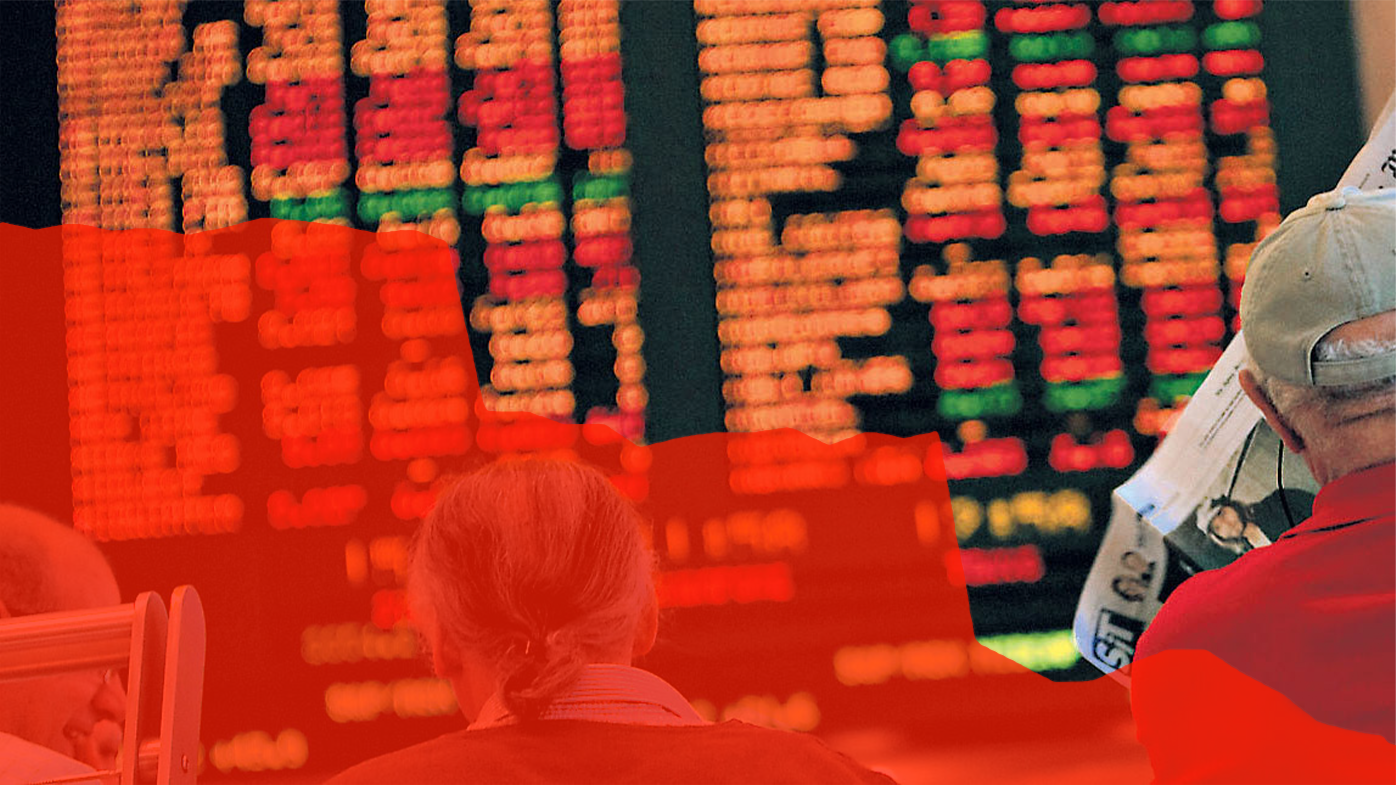
Australian markets will open nervously this morning after Wall Street tumbled overnight as fears about a slowing US economy prompt a global stock sell-off.
Investors will have one eye on the ASX and the other on the Reserve Bank of Australia ahead of yet another highly anticipated 2.30pm decision on whether to hike, hold or cut interest rates.
It’s unclear what weight, if any, the central bank will give to the ongoing market turmoil, although market analysts have speculated it will have nixed any chance of another increase.
READ MORE: Aussie share market loses $100 billion in bloodbath
In fact, after weeks of almost unanimously predicting no change to rates on Tuesday, market expectations of a 25 basis point cut to 4.1 per cent jumped to 20 per cent over the weekend.
Yesterday was already a dark day for investors before the New York Stock Exchange opened, with the ASX 200 losing $100 billion and Japan’s Nikkei suffering its worst day in history.
Just after midday on Monday (2am on Tuesday AEST), the S&P 500 was down by 2.1 per cent and the Dow Jones Industrial Average was reeling by 763 points, or 1.9 per cent.
It was the second day of losses in a row in the US, after Friday’s report showing US employers slowed their hiring last month by much more than economists expected panicked markets.
Those fears – that the US Federal Reserve, the equivalent of the Reserve Bank of Australia, had misjudged its latest interest rate hold and missed the chance to make a tricky soft landing between inflation and recession – quickly spread when the rest of the world resumed trading on Monday.
Professional investors cautioned some technical factors could be amplifying the action in markets, but the losses were still neck-snapping.
READ MORE: Japan’s Nikkei tumbles in biggest ever one-day loss as other Asian markets plunge
The ASX 200 dropped 3.7 per cent, South Korea’s Kospi index careened 8.8 per cent lower, stock markets across Europe sank more than 2 per cent and bitcoin dropped below $US55,000 ($84,900) from more than $US61,000 ($94,000) on Friday.
Even gold, which has a reputation for offering safety during tumultuous times, slipped 1 per cent.
That’s in part because traders began wondering if the damage had been so severe that the Federal Reserve will have to cut interest rates in an emergency meeting, before its next scheduled decision on September 18.
Like the RBA, the Fed has also been trying to thread the “narrow path” between slaying the inflation dragon and crashing the economy.
“The Fed could ride in on a white horse to save the day with a big rate cut, but the case for an inter-meeting cut seems flimsy,” said Brian Jacobsen, chief economist at Annex Wealth Management.
“Those are usually reserved for emergencies, like COVID, and an unemployment rate of 4.3 per cent doesn’t really seem like an emergency.”
The US economy is still growing, and a recession is far from a certainty. The Fed has been clear about the tightrope it began walking when it started hiking rates sharply in March 2022: Being too aggressive would choke the economy, but going too soft would give inflation more oxygen and hurt everyone.
Goldman Sachs economist David Mericle sees a higher chance of a recession within the next 12 months following Friday’s jobs report. But he still sees only a 25 per cent probability of that, up from 15 per cent, in part “because the data look fine overall” and he does not “see major financial imbalances”.
Some of Wall Street’s recent declines may also simply be air coming out of a stock market that romped to dozens of all-time highs this year, in part on a frenzy around artificial-intelligence technology and hopes for coming cuts to interest rates.
Critics have been saying for a while that the stock market looked expensive after prices rose faster than corporate profits.
“Markets tend to move higher like they’re climbing stairs, and they go down like they’re falling out a window,” according to JJ Kinahan, CEO of IG North America.
He chalks much of the recent worries to euphoria around AI subsiding and “a market that was ahead of itself”.
Professional investors also pointed to the Bank of Japan’s move last week to raise its main interest rate from nearly zero.
Such a move helps boost the value of the Japanese yen, but it could also force traders to scramble out of deals where they borrowed money for virtually no cost in Japan and invested it elsewhere around the world.
US stocks pared their losses on Monday after a report said growth for US services businesses was a touch stronger than expected.
– Reported with Associated Press
Watch every moment, every medal of the Olympic Games Paris 2024 live and free on Channel 9 and 9Now. Plus, every event ad-free and in 4K on Stan Sport.
links to content on ABC
9News





